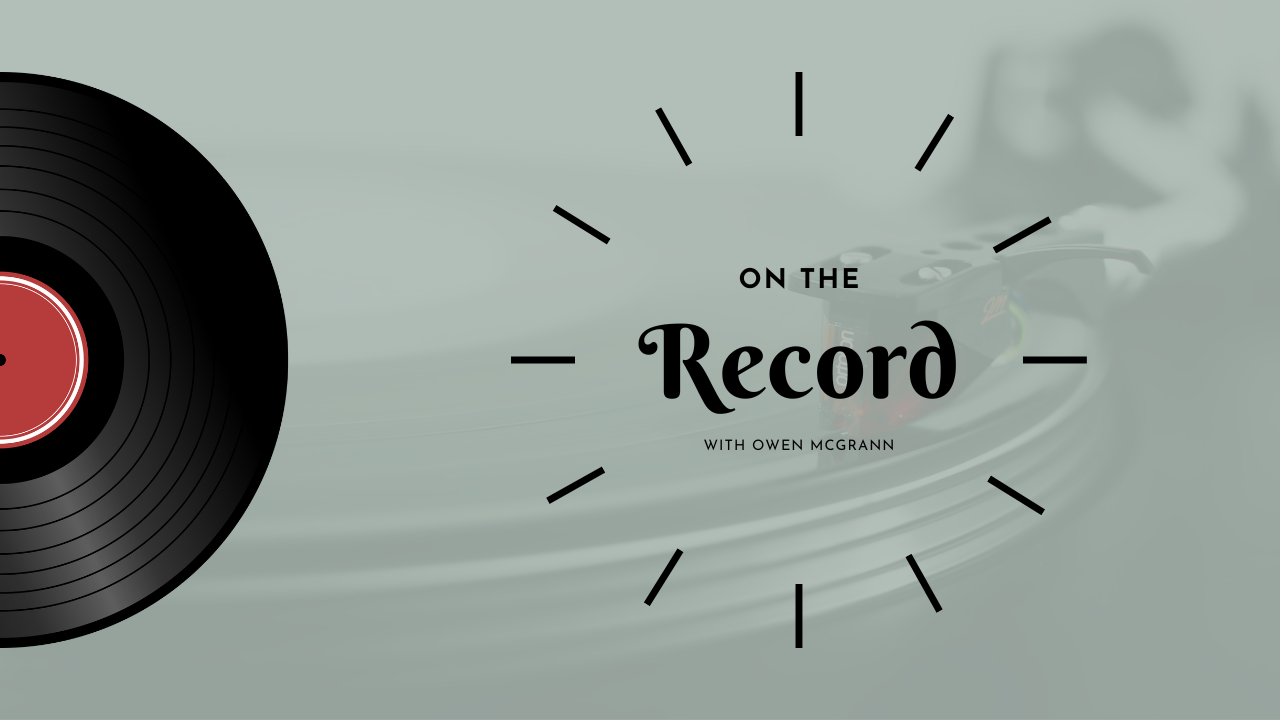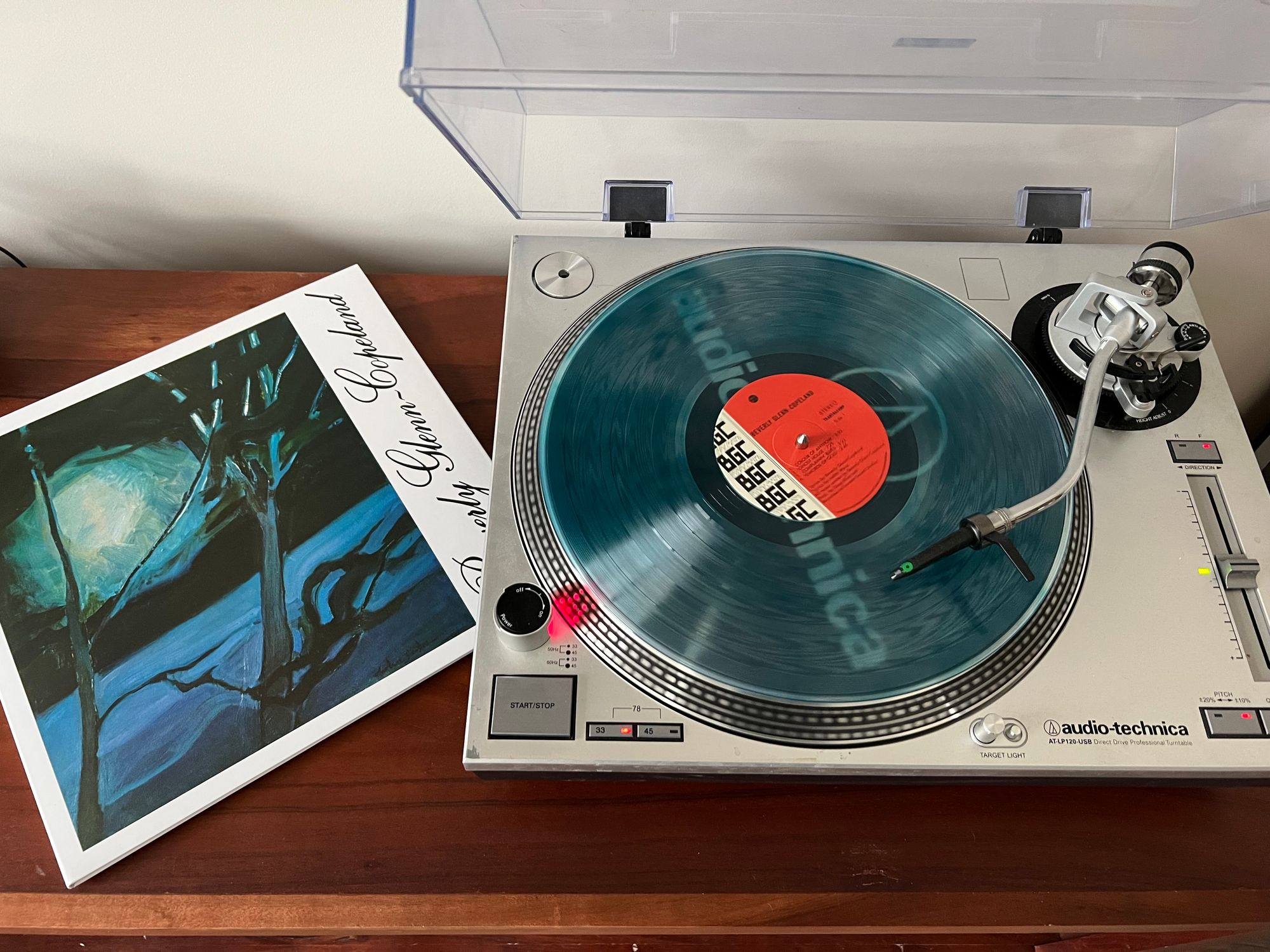OTR, Take 20: Beverly Glenn-Copeland - Beverly Glenn-Copeland

When I was a younger man, full of a different, more innocent kind of ambition, I was convinced that if I didn't have my first novel published by the time I turned 25, I would be a failure. You see, I could cherry-pick many of my favorite writers and see that they'd published their first work at or before 25: Pynchon's V., Camus's L'etranger, Mann's Buddenbrooks. So I did the insane thing and set the same crazy standard for myself.
You can guess how it went: I failed to publish a novel by 25 and inevitably considered myself a failure. I went to law school, having relegated my true ambition to the back bench in favor of a more achievable, commercial ambition.
Well, my friends, if you know anything of my journey, you have probably picked up on the fact that I don't really fit neatly into the legal world. I burned myself out in Biglaw, chasing an ever-elusive sense of accomplishment, trying to claw meaning from litigating high-stakes corporate disputes that I, in all honestly, gave not one shit about. Not one, solitary, shit.
As I am in the midst of carving out a space in the legal ecosystem that I can live in without wanting to get a lobotomy, I've begun thinking more deeply about the narratives I've told myself about success, happiness, and achievement. One of the things that I've always known even if I didn't quite understand is the power that these stories have over the way we see the world.
Language is our species' operating system and stories are the programs that run us. Or, to put it in more mystical terms, we are the golem that is given life only when the word (אמת – "truth") is imprinted on our forehead, yearning for some sense of place and meaning within that remit. Anyway, the point is that the stories that we tell ourselves about ourselves and about the world actually constrain or empower us.
The funny thing is we all create selective narratives; some of these narratives are designed to excuse behavior, to justify ourselves, to encourage the pursuit of something. But any narrative is by definition limited: a narrative is a selected and curated version of events. Any attorney who has drafted the facts section of a brief knows that you can write a narrative of the case that contains only true statements that is nevertheless highly misleading.
When our accepted narratives stop being useful, it is possible – perhaps necessary – to change them.
I've been thinking a lot about these things as I'm working my way through the Shitty First Draft of Pennhollow. By the time the book is edited and published (hopefully through a good house), I will have blown past that 25-year-old mark by about two decades. You will not be surprised to hear that I've begun noticing other writers who didn't publish their first works until middle-age: Walker Percy published The Moviegoer at 46, after going to medical school and falling seriously ill; Raymond Chandler published The Big Sleep at 51 after a drunken career in bookkeeping and auditing; Proust didn't publish Swann's Way until he was 43.
When we set aside the rare trajectory of immediate achievement (in any field), we start seeing a whole array of people who have persevered and done the hard thing, regardless of whether anyone noticed along the way.
Which brings me to today's record: Beverly Glenn-Copeland's unique self-titled sophomore album.

We generally like things to fit into neat categories. When we read books, we want to know what kind it is – mystery, romance, western, noir, literary, etc. – and we don't like it when books don't fit neatly into our preconceptions. Same for movies. The secret that most of us don't want to acknowledge is that we like reading the same stories and watching the same movies over and over again. Those books or movies that don't seem to have a "payoff" are typically one of two things: simply bad or a work that refuses to give you the expected outcome.
A love story where the couple doesn't get together at the end. A mystery that doesn't provide a neat, ingenious solution to the mystery.
The thing is, the examples above are more like how life often operates. We like love stories because it's how we want the world to work and we've seen countless people in our lives (sometimes ourselves) fall prey to life's refusal to give the happy ending. So our genres are designed to give us the happy endings predictably.
Music isn't a whole lot different, although these expectations operate differently. We love our genres and we get uncomfortable when they mix in ways that we don't easily comprehend.
Beverly Glenn-Copeland defies categorization and, unsurprisingly, his music was overlooked. In some ways, this benefitted him: he was left to create music as he saw fit and release it without commercial or fan expectations for the great majority of his life. It wasn't until he was 72 that he was "discovered." At that point, he had created for fifty years and was mostly bemused by the sudden attention.
Beverly Glenn-Copeland is a very weird record. Raised by a father who was a classical pianist and a mother who sang spirituals, Glenn-Copeland was one of the first black students to attend McGill University, where he performed Lieder – a type of German song where poetry is put to music and performed by a pianist and vocalist – came out, and eventually left school to record with a group of famous Canadian jazz musicians in Toronto.
To say that Glenn-Copeland's work defies genre isn't quite right. His music hungrily eats the motifs and hallmarks of any genre and turns them back out in somewhat unrecognizable form. Although his oeuvre has significant range, today's album is a peculiar mix of open-tuned folk, classical orchestration, and Lieder-influenced vocal warbling.
Imagine Nick Drake born and raised in a German pastoral painting, given access to some Mozart or Schubert sheet music.
Actually don't. That does a disservice to both men.
I love listening to this album early in the morning or very late at night. (And I have no patience for it at all in the middle of the day.) It's both ethereal and grounded at once: focused yet attempting to take flight. I can't help but wonder what fame would have done to his work. Now, Glenn-Copeland is able to laugh at the attention, grateful for the recognition but far from needing it for any type of validation.
He knows the value of his work, and he had to figure it out for himself.
I wonder how much we could learn from this. Anyone who knows me knows that I am ambitious. I wrote earlier in this newsletter that I hoped to have Pennhollow published by a good publisher. It's true that I would like that, but if I am being honest with myself, that's not the criterion I've set for myself.
Yes, I want people to like my writing. I sop up compliments like a good sourdough does soup. But that's not my motivation for writing. What I want to do is write a book that I would be proud to put on a shelf next to the books I love. That's it.
And when you think about it, that is the fate that Glenn-Copeland came to recognize as a gift. He was able to create without the distraction of chasing fame or accolades. After fifty years of making music, he knew that he had contributed something worthwhile.
Do we need more than that?
Member discussion